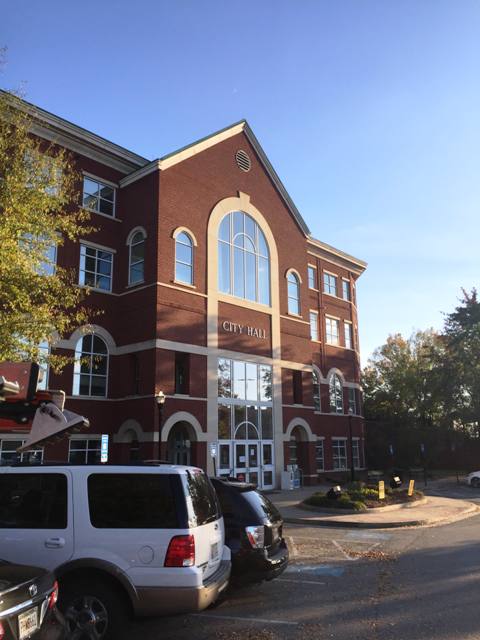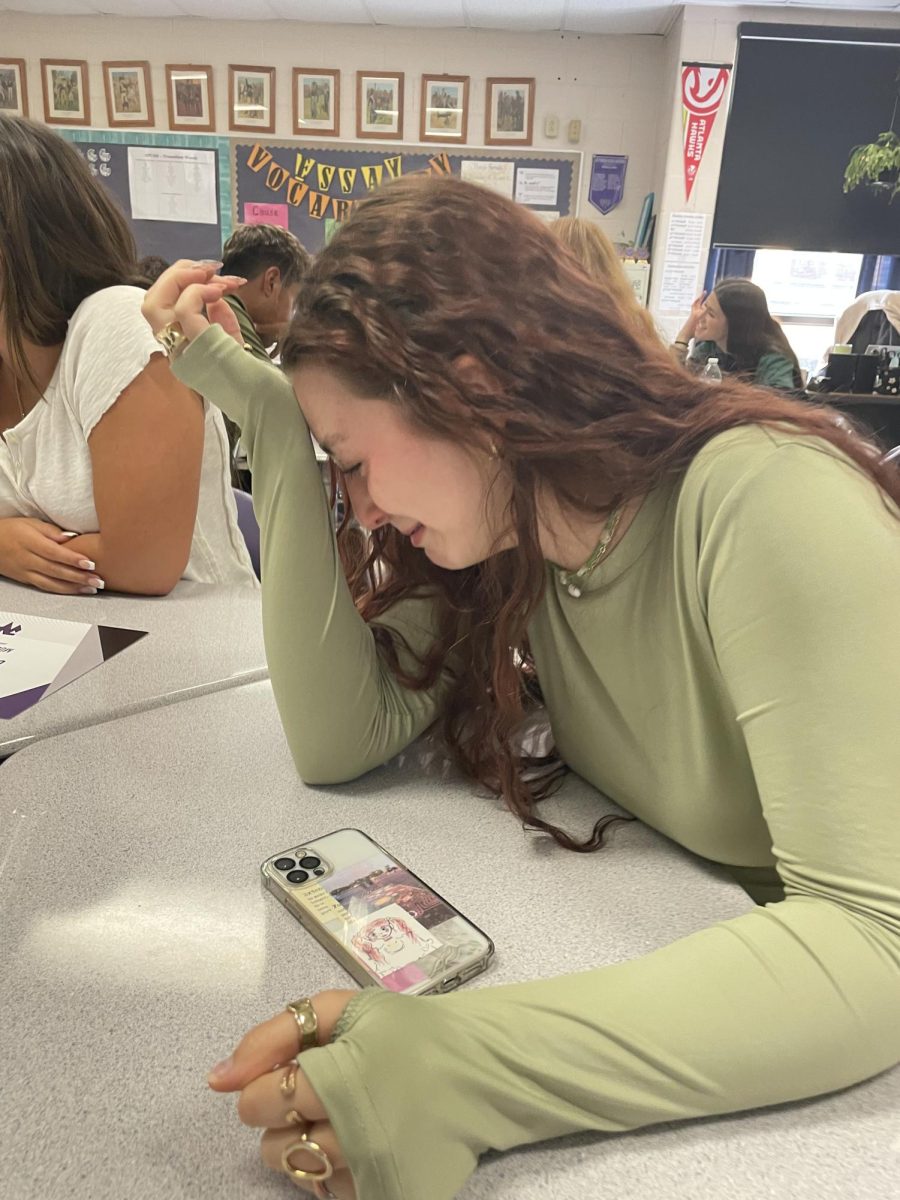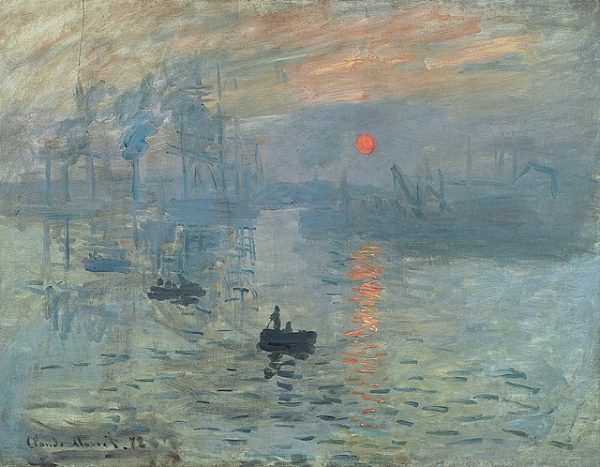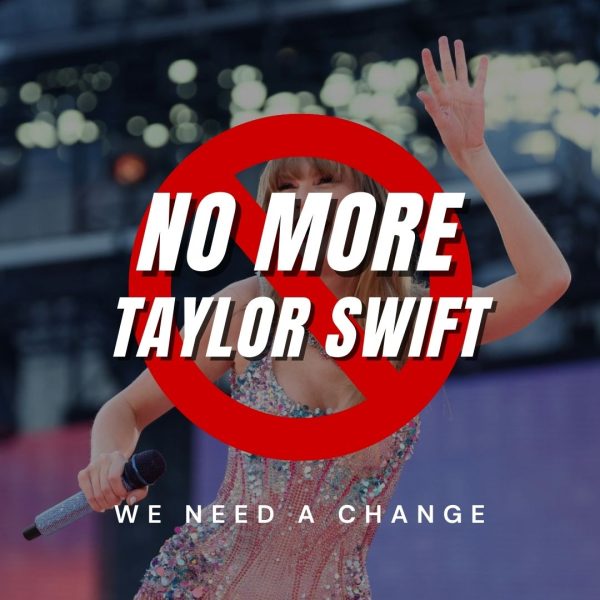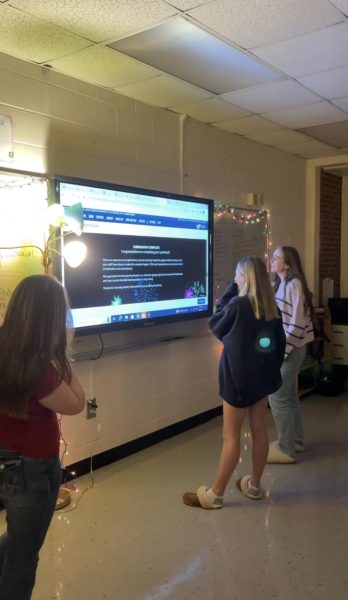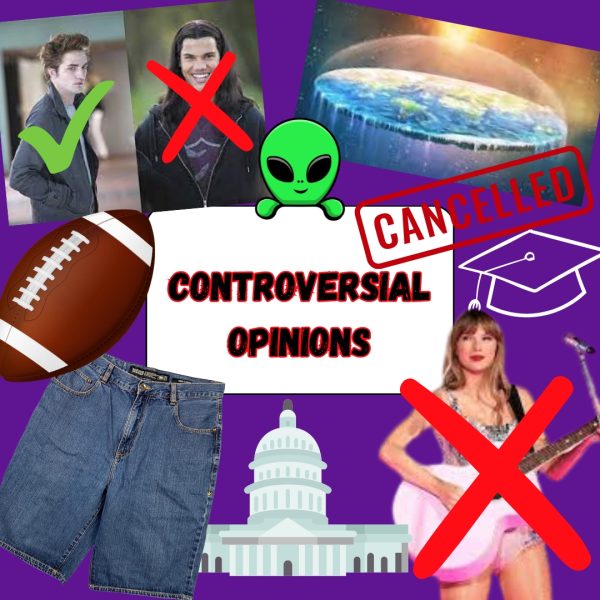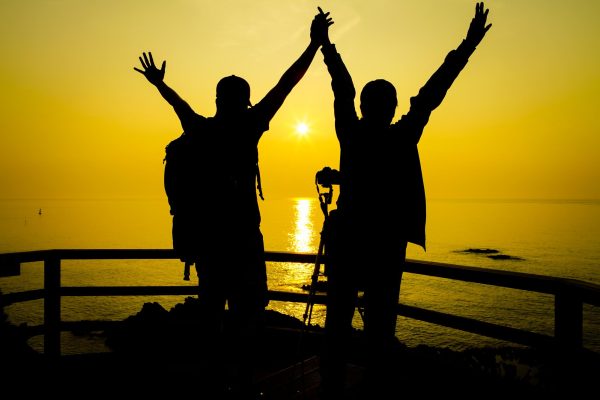Get Out and Vote
Make sure that you are registered to vote several months in advance of the election you plan to vote in. Many states do not allow people to register on the day of an election, with cutoff dates usually being a few weeks beforehand.
January 10, 2017
After school on the Friday before election day, I drove down to the Cumming City Hall and voted early. It took me about ten minutes, not even the time it took to get down there. There were only about five people in line, and the attendants were all quite friendly. My “I voted” sticker is displayed proudly in my office. Overall, the experience was painless.
I understand that 2016 was not exactly a “normal” election. Neither Donald Trump nor Hillary Clinton are well-loved people, but there is, in my opinion, a disturbingly high number of people who simply refuse to vote. I have heard the excuses. “How could I possibly live with myself if I voted for the lesser of the two evils?” “Nobody truly earned my vote.” “Both candidates are the same!” “My vote does not matter, why use it?”
When voting in an election, your goal is to vote for the person best suited to fill the office. Who you think should fill that role obviously depends on what your political beliefs are. Call it “picking the lesser of two evils,” fine, but that what an election, by definition, is. Politicians running for office try to be the best choice among those available. They promote themselves and talk about why they are the better choice while also trying to convince voters why the other candidates are not good picks.
Now, you might argue that politicians need to “earn” your vote, that you can only vote for a candidate you truly believe in. That is simply not how the world works. Political candidates are not going to appeal to every person all the time, and some people will inevitably end up disappointed with the selection. If you find yourself in that situation, you should still vote because the point of voting is to select the best candidate for an office, even if you personally have reservations about the choice. No politician is ever going to agree with you all the time.
Maybe, you believe both candidates are equally horrible, and you do not want to make the decision between them. I doubt it, however. With enough searching, surely you can choose which one you believe is better. Take the 2016 presidential election for example. Throughout their campaigns, Trump and Clinton differed on trade policy, gun control, immigration, healthcare, various issues of foreign policy, civil rights issues, taxation, spending and more. Surely, you have positions on the issues that allow you to compare the policies of Trump and Clinton. It would be downright shocking if you studied the candidates’ positions and concluded that you do not agree with one more than the other.
Finally, you may wonder why you should vote if millions of others will too. What is one vote among tens of millions? Take the 2000 election for example. George W. Bush won Florida by a margin of 537 votes. A recount was taken, and those votes handed the presidency to Bush. If you do not live in a swing state, your vote still matters. In 2016, there was much talk about the famed “Blue Wall,” the collection of states in the Northeast, the West and the Midwest that supposedly give Democrats a significant advantage in the Electoral College. On Nov. 8, Trump shattered the Blue Wall, winning the normally-blue states of Wisconsin, Michigan and Pennsylvania while coming extremely close in Virginia, New Hampshire and Minnesota.
Do not make the mistake of just voting in presidential elections. Local, state and congressional elections matter as much if not more than the presidential. Midterms define the shape of the next two years, and state politics affect local communities far more than politics in Washington. Vote, and vote often.
Voting may not be as painless as it was for me. Elsewhere, there were lines much longer than the ones I had to deal with. That is why early voting exists. If you cannot make it to the polling station on election day, or if your schedule keeps you from voting on election day, make sure to vote the weekend before while the lines are less crowded. With measures like early voting and vote-by-mail, there is very little reason not to do your civic duty.


